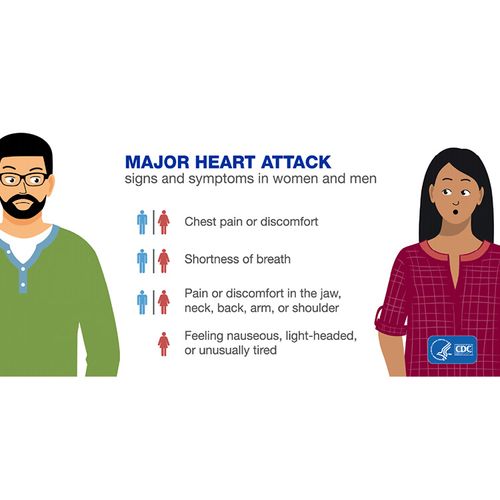It seems the heart can really break from a sudden emotional shock—if only temporarily—causing damage that may be mistaken as a heart attack.
The phenomenon is known as "broken heart syndrome," and it can trigger severe, temporary heart muscle weakness that mimics a classic heart attack, Johns Hopkins scientists claim in a new report. But unlike a heart attack, these symptoms are only temporary, and the heart quickly rebounds.
The Evidence
Johns Hopkins researchers identified "broken heart syndrome" by studying 18 women who were hospitalized with symptoms of a heart attack-including chest pain, shortness of breath, fluid in the lungs and a drastically reduced ability of the heart to pump blood. Most of the women were approximately 63 years old.
"Everyone thought they were having heart attacks," says Dr. Hunter Champion, assistant professor of medicine at Johns Hopkins School of Medicine.
But physical exams and blood tests did not show evidence of a heart attack-no blockage of the coronary arteries, no increased levels of the enzymes that are released when the heart muscle is damaged, no physical signs of heart damage.
However, a striking feature of the syndrome was the heart's unique contraction pattern when viewed by echocardiogram. Although the base of the heart's main pumping chamber, the left ventricle, contracted normally, there was weakened contraction in the middle and upper portions of the muscle.
The patients improved considerably in a few days, and they recovered completely within two weeks. In contrast, even partial recovery from a heart attack can take weeks or months, the researchers note.
The Explanation
Upon careful evaluation, researchers found the symptoms these women were experiencing were caused by a massive release of stress hormones and adrenaline that can "stun" the heart. These hormones are released following traumatic events, such as hearing news of a loved one's death or being involved in a crime or an accident.
But rather than requiring the drastic treatment that is needed for a heart attack, patients only needed some rest, counseling and/or support for their heart to recover, the researchers say.
The Implications
If it is identified, physicians "can save patients from having treatments such as an implanted defibrillator or even a heart transplant," says Champion.
The Johns Hopkins report "will lead to more questioning of patients before the physician comes up with a diagnosis," says Dr. Marc S. Penn, medical director of the coronary intensive care unit at the Cleveland Clinic. It also should prompt more measurements to detect elevated levels of the stress hormones described in the new report, he adds.
Hopkins physicians are now doing studies to determine how stress hormones can stun the heart, why the condition strikes predominantly older women and whether there might be a genetic vulnerability to the condition, Champion says.
They also are trying to determine how often it occurs. "My guess is that it happens much more frequently than has been thought," adds Champion.
"We do see this quite regularly," says Penn. "It is not uncommon."
However, Penn notes, "We don't think that everyone who has an argument with a spouse goes into heart failure."
